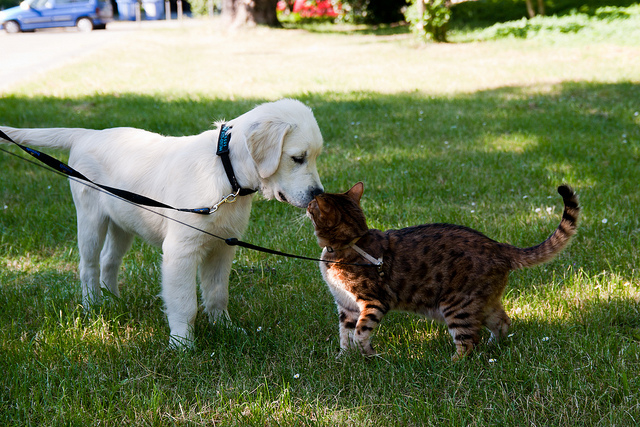The Animal Health Center at the Veterinary Village surgical facilities and surgeons are equipped with the most sophisticated tools in medicine. Our staff is dedicated to perfecting the most state-of-the-art procedures, from orthopedic surgery to laparoscopy, arthroscopy, laser assisted surgery and so much more. Just some of the surgical services that we provide are as follows:
- Gastrointestinal
- Respiratory
- Cardiovascular
- Hemolymphatic
- Neurological
- Eye
- Reproductive
- Urinary
- Endocrine
- Ear
- Skin
- Orthopedic
- Ontological
- Body Cavity and Hernia Repair
- Dentistry
The Animal Health Center will provide routine and elective care during regular business hours, Monday through Friday, 10am – 6pm, Sundays, 10am – 2pm and on an emergency basis . Please call for availability.
-
TTA RAPID: The New Face of ACL Surgery
Animal Health Center at Veterinary Village has been instrumental in redefining the role of minimally invasive surgery and diagnostics in veterinary medicine.
For Full Details, view our TTA Rapid and ACL Surgery Page
-
Minimally Invasive Surgery
The Animal Health Center at Veterinary Village has been instrumental in this region in redefining the role of minimally invasive surgery in veterinary medicine. We utilize the most cutting-edge surgical equipment and groundbreaking methods to provide our clients with the highest quality of medical care.
For Full Details, view our Minimally Invasive Surgery Page
-
Spaying & Neutering

What are Spaying and Neutering?
Spaying and neutering are both veterinary surgical procedures that remove your pet's reproductive organs to prevent any future breeding. The process of spaying a female animal is called an “ovariohysterectomy,” which removes its ovaries, fallopian tubes and uterus. The results of neutering in the castration of male animals involves complete removal of their testicles.
What are the Health Benefits of Spaying and Neutering?
Spayed animals will not be at risk for ovarian or uterine cancer and are less likely to develop breast cancer. Intact males have a natural instinct to roam around and fight with other animals who may have contagious diseases or parasites. By neutering males, your pet will not get testicular cancer and will have a reduced risk of injury and transmission of diseases.
When is the Best Time to Spay or Neuter My Pet?
Pets can be spayed or neutered once they are 8 weeks of age. Those in animal shelters go through this surgery around this time so they can be sterilized prior to adoption. It's advisable to schedule these surgery procedures prior to six months of age in order to avoid the start of urine spraying and eliminate its chances for pregnancy.
Will My Pet Act Differently After it is Spayed or Neutered?
Your pet will most likely be calmer after the surgery. Fixed pets require less food due to the lowering of their excitement levels. Ask us about your pet's new dietary needs.
How Do I Prepare My Pet for Surgery?
Avoid feeding your pet after midnight the night before the surgery. Also, take your pet for a walk so that he or she is tired out and less stressed during the process.
What is the Recovery Process for Recently Spayed or Neutered Pets?
Your pet may experience some discomfort after the surgery, but shouldn't be in any excessive pain. Medication can be sent home with your pet to control any pain. Here are some tips for your pet's safe and comfortable recovery:
- Provide a quiet place indoors away from other animals.
- Try to prevent your pet from running or jumping for the first few days following the surgery.
- Prevent your pet from licking the incision site as it may cause infection. Try distracting your pet with some treats or by using an Elizabethan collar.
- For your cat, consider using shredded paper instead of cat litter. The dust from the litter box can also cause infection.
- Avoid bathing your pet for at least ten days after the surgery.
- Check the incision site daily to confirm proper healing.
- If you notice any redness, swelling or discharge at the surgery site, or if the incision is open, please contact your vet immediately. Also, contact your vet if your pet shows signs of lethargy, decreased its appetite, is vomiting or has diarrhea following the surgery.


